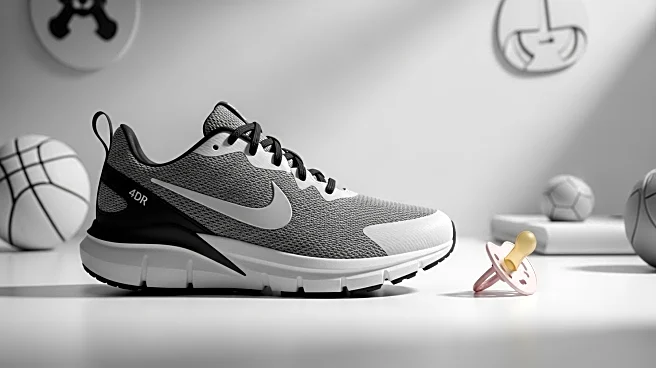What's Happening?
Indiana Fever star Sophie Cunningham recently made headlines with her comments about 'getting baby fever' during an episode of her podcast, Show Me Something. Cunningham's remarks come in the context of the unique challenges female athletes face regarding pregnancy and career management. Unlike their male counterparts, female athletes must consider the impact of pregnancy on their professional lives, often requiring them to pause their careers for the duration of the pregnancy and recovery. This issue is particularly relevant in women's basketball, where players like Cheyenne Parker-Tyus have had to navigate the complexities of returning to the court post-pregnancy. Parker-Tyus notably returned to play in the WNBA Finals just 70 days after giving birth. Other players, such as Dearica Hamby and Skylar Diggins, have also faced career interruptions due to pregnancy.
Why It's Important?
Cunningham's comments bring attention to the broader issue of how pregnancy affects female athletes' careers. This is significant in the context of professional sports, where the physical demands and competitive nature can make it challenging for athletes to balance family planning with career aspirations. The discussion highlights the need for supportive policies and practices within sports organizations to accommodate female athletes who choose to start families. This could include more flexible contracts, maternity leave policies, and support systems to help athletes return to peak performance post-pregnancy. The conversation also underscores the societal expectations and pressures on women to balance professional success with personal life choices.
What's Next?
As more female athletes speak out about the challenges of balancing pregnancy and professional sports, there may be increased advocacy for policy changes within sports leagues. Stakeholders, including sports organizations, sponsors, and athlete unions, might explore ways to better support female athletes through maternity leave and post-pregnancy career transitions. This could lead to broader discussions about gender equality in sports and the need for systemic changes to ensure that female athletes are not disadvantaged by their personal life choices.
Beyond the Headlines
The issue of pregnancy in professional sports also touches on cultural and ethical dimensions, such as the societal expectations placed on women regarding family and career. It raises questions about how sports culture can evolve to be more inclusive and supportive of female athletes' life choices. Additionally, it highlights the potential for long-term shifts in how sports organizations view and support their athletes, potentially leading to more comprehensive health and wellness programs that address the unique needs of female athletes.










